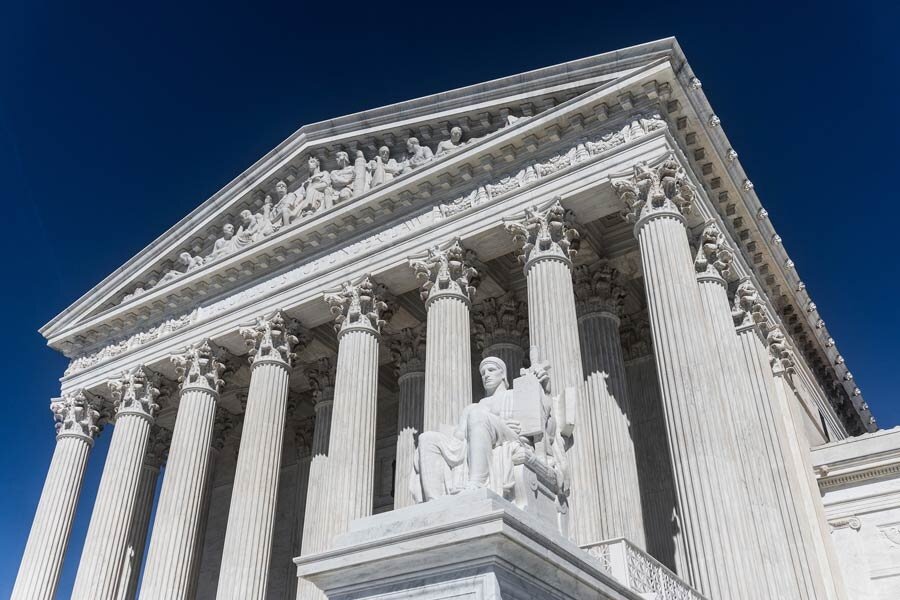The Supreme Court, in a six-to-three decision, overturned a drug mule’s conviction, citing that expert testimony from a Homeland Security Investigations (HSI) special agent violated federal evidentiary rules.
In 2020, Delilah Diaz was stopped at a U.S.-Mexico border Port of Entry. During a search of her vehicle, Border Patrol agents discovered over 54 pounds of methamphetamine.
Diaz was charged with importing methamphetamine, with federal prosecutors needing to prove she was aware she was bringing drugs into the U.S. across the border.
During the trial, Diaz asserted that she was unaware of the methamphetamine hidden in her car. In response, federal prosecutors called HSI Special Agent Andrew Flood to testify as an expert witness.
Flood argued that drug traffickers usually do not trust couriers with large quantities of drugs without informing them of their cargo.
Diaz claimed Flood’s testimony violated federal evidentiary rules, claiming he was stating an opinion about her mental state or condition. The court allowed Flood to testify that most couriers are aware they are transporting large amounts of drugs in similar cases.
In the case, a jury convicted Diaz, who appealed the decision on the basis that Flood’s testimony violated federal evidentiary rules. The Court of Appeals upheld the conviction.
On Thursday, Justice Clarence Thomas, writing for the majority, determined that Flood’s expert testimony was not considered an opinion and therefore did not violate federal evidentiary rules:
In this case, Agent Flood did not express an opinion about whether Diaz herself knowingly transported methamphetamine. Instead, he testified about the knowledge of most drug couriers.
That opinion does not necessarily describe Diaz’s mental state. Because Agent Flood did not express an opinion about whether Diaz herself knowingly transported methamphetamine, his testimony did not violate Rule 704(b). [Emphasis added]
Diaz’s counterarguments are unpersuasive. She first argues that Agent Flood functionally stated an opinion about whether she knowingly transported drugs when he opined that most couriers know that they are transporting drugs. But an opinion about most couriers is not an opinion about all couriers.
Agent Flood asserted that Diaz was part of a group of persons that may or may not have a particular mental state. The ultimate issue of Diaz’s mental state was thus left to the jury’s judgment.
Diaz next relies on dictionary definitions of “about” to argue that Rule 704(b)’s phrase “state an opinion about” includes all testimony that “concerns” whether the defendant had a particular state of mind.
That text’s surrounding context, however, makes clear that Rule 704(b) addresses only conclusions as to the defendant’s mental state. Rule 704(a) further confirms the narrow scope of testimony prohibited by Rule 704(b).
Because Rule 704(b) is an “exception” to Rule 704(a), Rule 704(b) can only be understood to cover a subset of the testimony that Rule 704(a) expressly allows, which is opinion testimony that includes ultimate issues. Diaz’s reading would have the exception swallow the rule. [Emphasis added]
Thomas was joined by Chief Justice John Roberts and Justices Samuel Alito, Brett Kavanaugh, Amy Coney Barrett, and Ketanji Brown Jackson, who filed a concurring opinion. Justice Neil Gorsuch filed a dissenting opinion, joined by Justices Sonia Sotomayor and Elena Kagan.
Share your thoughts by scrolling down to leave a comment.













